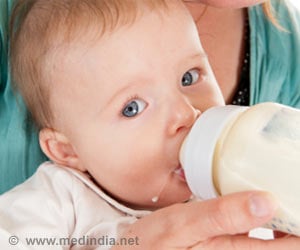Proposing a new theory of autism, scientists have revealed that the brains of autistic people are structurally normal but dysregulated, which implies that the disorder might be reversible.
Proposing a new theory of autism, scientists have revealed that the brains of autistic people are structurally normal but dysregulated, which implies that the disorder might be reversible.
The theory put forward by scientists at Albert Einstein College of Medicine of Yeshiva University is centred on the principle that autism is a developmental disorder caused by impaired regulation of the locus coeruleus-a bundle of neurons in the brain stem that processes sensory signals from all areas of the body.The new theory is the result of decades of anecdotal observations that some autistic children seem to improve when they have a fever, only to regress when the fever recedes.
A previous study has already shown that autistic children experience behaviour changes during fever.
"On a positive note, we are talking about a brain region that is not irrevocably altered. It gives us hope that, with novel therapies, we will eventually be able to help people with autism," said theory co-author Dr. Mark F. Mehler, chairman of neurology and director of the Institute for Brain Disorders and Neural Regeneration at Einstein.
The researchers reckon that scientific evidence clearly indicates that the locus coeruleus-noradrenergic (LC-NA) has a major role to play in autism.
"The LC-NA system is the only brain system involved both in producing fever and controlling behavior," said co-author Dominick P. Purpura.
Advertisement
The researchers hypothesized that in autism, the LC-NA system is dysregulated by the interplay of environment, genetic, and epigenetic factors (chemical substances both within as well as outside the genome that regulate the expression of genes).
Advertisement
And for evidence they pointed to a 2008 study, which found that maternal exposure to severe storms at mid-gestation resulted in the highest prevalence of autism.
According to the researchers, in autistic children, fever stimulates the LC-NA system, temporarily restoring its normal regulatory function.
"This could not happen if autism was caused by a lesion or some structural abnormality of the brain. This gives us hope that we will eventually be able to do something for people with autism," said Purpura.
Instead of advocating fever therapy (fever induced by artificial means), the scientists claimed that the future of autism treatment lies in drugs that selectively target certain types of noradrenergic brain receptors or, more likely, in epigenetic therapies targeting genes of the LC-NA system.
"If the locus coeruleus is impaired in autism, it is probably because tens or hundreds, maybe even thousands, of genes are dysregulated in subtle and complex ways," said Mehler.
He added: "The only way you can reverse this process is with epigenetic therapies, which, we are beginning to learn, have the ability to coordinate very large integrated gene networks."
The study has been published in Brain Research Reviews.
Source-ANI
SRM












